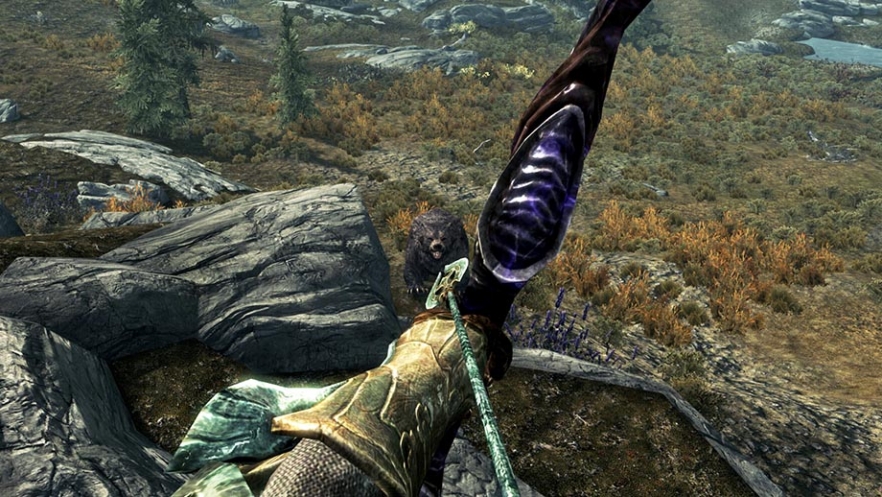Immersion. It's this sense of seamlessness and continuity in a video game that makes it feel more real. It's the holy grail of hardcore gamers, to enter a game and become fully engrossed in that world to the exclusion of outside influences. But even the best games aren't fully immersive. There's always a sliver of consciousness that remains aware of the fictional nature of the activity. I call this little sliver "Gamersion" and it's that sliver that I want to talk about.
Game developers are constantly seeking to improve ways of shrinking or eliminating or ignoring that sliver of consciousness, to improve "immersion". Higher frame rates, better visual quality, deeper stories and characters.
But I wonder if that should really be our goal. Instead of trying to eliminate our awareness of a video game as a game, why don't we try to capitalize on it? What if we make a game that is aware that it's a game AND that is designed around the player being aware of it as well?
Let's take a simple example from a fairly popular RPG game: The Elder Scrolls. It's an immensely popular series of games and it has set a high bar for modern open-world and sandbox video games. One particular quirk of these games, however, is that non-player characters can't jump. The game just wasn't designed with that as part of the program. So a player gets into the game and comes across a foe that is too powerful and the player's about to die - but wait! The player can jump! So you jump up onto some rocks to get away from the sabretooth cat trying to eat you and you shoot it at range with your bow.
Never mind that a real sabretooth cat could jump three times as high as any human, the game cats can't jump. And a player that knows this will make one of two decisions - to jump out of reach of the enemy, or to consciously avoid jumping in order to avoid "exploiting" the game's unreality. Either choice is a conscious choice on the part of the player outside of the game world. Technically, this is an "immersion breaking" flaw and there are plenty of examples of players complaining about it online.
But what if the developers did that on purpose? What if a game were designed that intentionally pushed the player out of immersion - as part of a strategy or puzzle?
There's one game that I've played that's actually done this. The Talos Principle (great game, delightfully nerdy) is loaded with QR codes, messages hidden in HEX or Binary, and bundles of easter eggs that force the player to leave the game in order to understand them - but rather than detract from the game, these jaunts back to reality actually add to the game's story and depth. Translating the HEX in a corrupted e-mail actually pulls the player deeper into the mystery of the game, even though the player has to leave the game to do so. I actually began thinking about the idea of gamersion before The Talos Principle was released, and it made me giddy to see that someone else had stumbled across this idea and executed it so well.
So this example answers my question - games can be better if they integrate themselves into reality instead of trying to separate themselves from it. Sure, this approach may not be appropriate for every game out there, but if more developers see the benefits as Croteam did, then we can look forward to games in the future that are far more engaging because they break immersion. Because players are never really immersed, they're gamersed.
(BTW, yes, I know, "gamersed" is not a very catchy word. Inventing new words is hard.)
Category:

